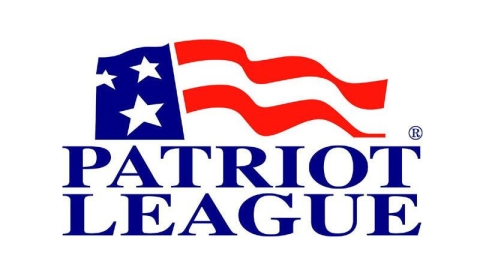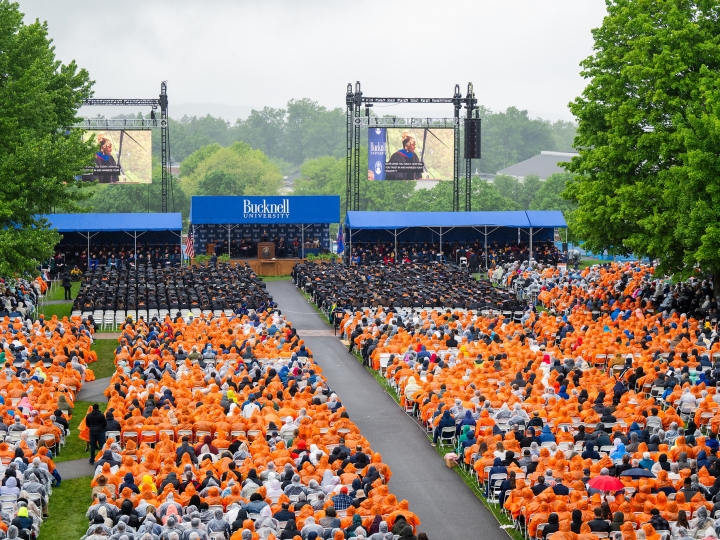
Patriot League Emerged From Ivy League Model 25 Years Ago
April 16, 2016
Array
In the mid 1980s, Ivy League schools were looking to add nonconference football games against opponents that would offer reasonably competitive contests. Schools such as Bucknell, Lehigh, Lafayette, Holy Cross and Colgate — geographically close, with high academic standards and sharing the Ivy policy of no athletic scholarships — seemed like a good fit. With Ivy games as a building block, Bucknell and five other schools formed a new football conference in 1986 — the Colonial League.
Five years later, with the football competition working well, the Colonial schools expanded to more sports and chose the name The Patriot League. Bucknell's then-president Gary Sojka was a key force in launching this new Division I conference, founded upon the scholar-athlete model of college sports.
Noted sports journalist John Feinstein lauded the Patriot League's student-centered approach to college sports in his 2000 book The Last Amateurs, which followed the league's men's basketball teams for a full season.
Bucknell and the other schools, Feinstein wrote, "refused to sell their souls in the name of winning games and cashing in on the athletes they recruit." They "simply won't give in to the temptation to take gifted athletes who are poor students."
And yet, one pillar of that commitment to the scholar-athlete model — no athletic scholarships — was a flashpoint from day one.
William & Mary opted out of plans to join the still-forming football conference over the no-scholarship policy, according to Bucknell Director of Athletics and Recreation John Hardt. Eventually, founding member Davidson College dropped out of the league.
As the cost of higher education escalated, the remaining Patriot League schools found it harder to recruit top athletes whose talents could earn them free educations elsewhere.
And if Patriot League champions were going to get automatic berths in NCAA tournaments, the league needed to add more schools in some sports — another challenge made more difficult by the restrictive, need-only scholarship policy.
By 2012, the league had decided to allow athletic scholarships in all sports, including the last holdout, football. Bucknell had gradually embraced the option in other sports, but the decision on football prompted serious soul-searching.
President John Bravman ultimately decided Bucknell could offer merit aid in football "in a way that upholds our core values," just as it had done in other sports.
The four-year phase-in of merit aid in Bison football will be complete as the team takes the field this fall.
"It was just competitively too difficult" to stick with need-only aid, Hardt says. When the vast majority of the other Division I schools could offer athletic scholarships, "the playing field was slanted," he says.
Today, not every Bison sport offers the full amount of scholarship aid allowed by NCAA Division I rules.
Bucknell and other Patriot League schools remain staunchly committed to the scholar-athlete model and they enforce that commitment by using a rigorous academic index to ensure their athletes are academically representative of the student body as a whole.
When the Patriot League named its 25th anniversary teams in 2015, the roster of all-stars included 64 Bison athletes. Another three Bucknell football players had been honored five years earlier, when the league announced that sport's 25th anniversary all-star team.
"The Patriot League is such an outstanding conference for Bucknell to be affiliated with," says Hardt. "It's not an accident that we were a charter member."
Matt Zencey is a retired journalist living in West Chester, Pa.

